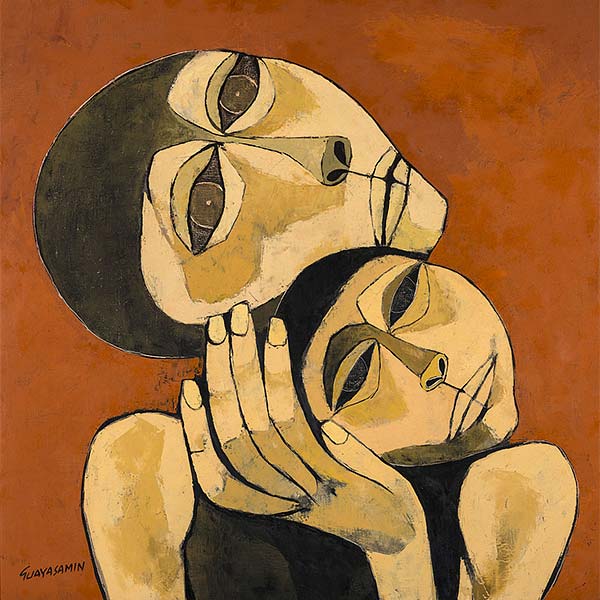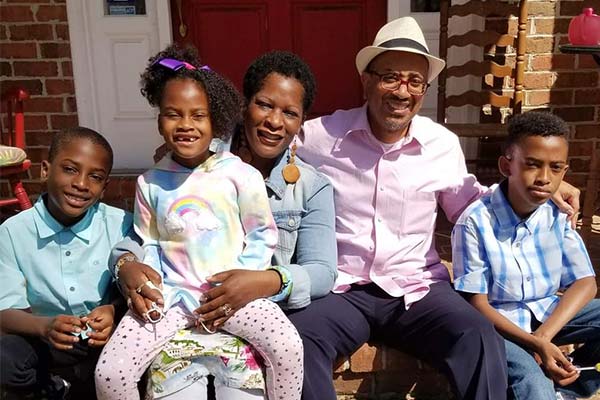Subtotal: $
Checkout-

Everything Will Not Be OK
-

Jesus and the Future of the Earth
-

The Other Side of Revelation
-

American Apocalypse
-

Syria’s Seed Planters
-

At the End of the Ages Is a Song
-

Searching for Safety
-

Stable Condition
-

Editors’ Picks: “In the Margins”
-

Editors’ Picks: “The Genesis of Gender”
-

Editors’ Picks: “Sea of Tranquility”
-

Poem: “Stopping By with Flowers”
-

Poem: “Sugarcane Memories”
-

Poem: “Sonnet Addressed to George Oppen, Arlington National Cemetery”
-

Diaconía Paraguay
-

Winners of the Second Annual Rhina Espaillat Poetry Award
-

Forum: Letters from Readers
-

Charles de Foucauld
-

Covering the Cover: Hope in Apocalypse
-

War Is Worse Than Almost Anything
-

The Last Battle, Revisited
-

The Problem with Nuclear Deterrence
-

A Haven of Olives
-

Book Tour: Time for an Intervention
-

Hoping for Doomsday
-

Radical Hope
-

The Sermon of the Wolf
-

The New Malthusians
-

The Spiritual Roots of Climate Crisis
-

Tradition and Disruption
-

The Apocalyptic Visions of Wassily Kandinsky
-

War and the Church in Ukraine

The Griefs of Childhood
During the pandemic, I learned to weep with my children.
By Anika T. Prather
June 8, 2022
Raising children has always been hard, but the past two years have been especially challenging. All parents desire to have their children grow up in a time of joy and memory-making. However, for our family the very first week of the pandemic threw us into a season of shocking deaths of close family and friends, and I had to find some way to parent while grief threatened to consume me.
I am not sure why this time of Covid also seemed to unleash other types of tragedies, but that’s what happened in the midst of missing so many of those we dearly loved. There was the fear of catching Covid. There was the fear of racial unrest and injustice finding its way into our peaceful family life. There was also the fear that comes from wars breaking out around the world. My children felt all of this tension, and I wrestled with how to help them cope while also working through my own anxieties.
I was not sure if I was supposed to put on a strong face for my children and then cry in privacy and silence when they weren’t looking, or whether I should let them see me wrestle through my emotions to show that it is OK to feel grief. I do not have a deep reason for why I chose to let them see me grieve. I simply could not do otherwise; I was too overwhelmed. My mind was so full of hurt and fear that I did not have the strength to put on a brave face. To my surprise, as my children and I grieved together, I saw them grow and mature in powerful ways, developing an understanding of the Christian faith that I pray will carry them through the rest of their lives.

Oswaldo Guayasamín, Madre y niño, ca. 1985
I run a small Christian school called The Living Water School that I founded in 2015. Before the virus we had been a regular school community with a building and a hectic schedule of classes, sports, plays, assemblies, and more. In March 2020 that all came to a screeching halt. Along with everyone else, we closed down the school and went to virtual learning. But as my children and I walked back into our house, leaving behind a building that had been our second home for five years, we did not feel sad. Instead, we were excited to be home together and we had plans of enjoying our solitude as a family, while also juggling online learning. We did not know what was to come.
What we thought would be a peaceful stretch of family time turned tragic within days. The following Friday morning, we got the news that a very close friend had been brutally murdered. He had grown up in our church and we had just seen him speak there the other day; it didn’t seem like it could be real. Then within hours, we learned that my brother-cousin (as our family calls cousins who feel more like siblings) died of Covid after being sick for only two days.
Both those blows in one single day left me falling on the floor in utter grief and despair. Through the blur of my tears I could see my children’s puzzled faces, tears streaming down their cheeks too. This cousin, more like an uncle to them, had been their Sunday School teacher and had the most precious way of interacting with our kids. Instantly, he was gone. I gathered my children around me in my arms and we cried together. We talked about our memories of him together. We questioned God together. We expressed fear together. We began to process the loss together. In that moment, as I invited my children into my grief, they invited me into their grief in turn, and the beauty of this is that we never felt alone.
My husband was the strong one. He grieved too, but he figured out ways to bring us joy in such dark times. He got us out into nature and planned all types of family activities to help us take our minds off the darkness. At the same time, he gave us space to cuddle together and weep. He also became the spiritual guide for questions that I was too sad to answer. He recalled verses of inspiration that strengthened our hope and faith as believers in Christ: “We are confident, I say, and willing rather to be absent from the body, and to be present with the Lord” (2 Cor. 5:8). Both the loved ones we lost had accepted Christ, and our hope in their place in eternity had never become more comforting than at that time. What we had taken for granted now became a reality.
Sadly, these losses were just the beginning as we continued each month to lose a loved one to tragedy, Covid, or other illnesses. There were no indoor funeral ceremonies; instead, we drove in funeral processions to the burial sites. “Weep with those who weep” (Rom. 12:15), I would tell my children, and these moments became a lesson in empathy.

The author with her family Photograph courtesy of the author
As we continued to lose people, sometimes to violent deaths, I would explain that this world is full of human beings with free will. Sometimes we place too much responsibility on God to protect humanity from tragedy, when the evil comes at the hands of humans. But there are many evils with no clear villain or explanation, like the illness that took so many lives.
As I sought words to explain to my children how a loving God allows such tragedy, I was challenged to look at my own understanding of the Bible. I think of when Job’s wife told him to “curse God and die” as they endured losing all ten of their children and everything they owned. His response to her was, “shall we accept good from God, and not trouble?” (Job 2:10).
God never promised us that there would not be trials. What God did promise us is that through it all, he would walk with us and help us find peace in the good and the bad. “Yea, though I walk through the valley of the shadow of death, I will fear no evil: for thou art with me; thy rod and thy staff they comfort me” (Ps. 23:4). I let my children see me pray and cry out to God. Then they also saw me walk in the peace that he gave to me. They were able to experience with me what it means to walk through the valley of the shadow of death and know God’s presence. Through this dreadful season, I began to see my children’s faith in God grow beyond bounds.
One sign of this growth came when I lost one of my closest friends. Mr. Coletrane had taught with me in Christian schools for over ten years, including two years as the art teacher at The Living Water School. My children and I have the art they created with him hanging around our home. Suddenly, while driving home one day, he died of a heart attack. My kids and I again found ourselves cuddled in each other’s arms, weeping. Then my kids found encouragement in his faith, knowing he was with God. However, I could not get myself together. I just missed him so much. I missed his weekly phone call, where he would greet me, “What’s up, Prather?” So full of joy, always with a word of scripture on his tongue. I could not shake the memory of his voice, saying, “Keep pressing, Prather! You’re doing the Lord’s work!”
I sat there unable to move through my grief. My youngest son, the one who rarely speaks and is the most shy of all my children, came to me with the gentlest voice and asked, “Mommy, did Mr. Coletrane know Jesus?” I looked up and said, “Yes.” He continued, “Sometimes when I lose someone I love and I know they knew God, I feel better because I know they are in heaven and I will see them again.” He said that and then just stared at me. Instantly, my tears stopped. That year of grieving together was bearing fruit. As we practiced together what it means to walk in faith even in the darkest of times, my children had learned what a life of faith really means: “Now faith is the substance of things hoped for, the evidence of things not seen” (Heb. 11:1). Teaching my children to rest in their faith even when they cannot see hope is the most powerful lesson I could have given them. And in this moment, my youngest son returned the gift to me.
These two years of enduring so much heartache have forced me to abandon any notion that I can shelter my children from sorrow. News of war and images of other families split apart by violence have reminded me of this yet again. I used to think we had to wait to talk to our kids about dying or other tragedies, but these moments of grieving together have taught us to have honest conversations about mortality – even our own. Although I know my children’s faith will be tested in this world of so much pain and darkness, my hope, my prayer, is that by seeking comfort in God’s arms, they will be able to face whatever trials come their way.
Already a subscriber? Sign in
Try 3 months of unlimited access. Start your FREE TRIAL today. Cancel anytime.










































